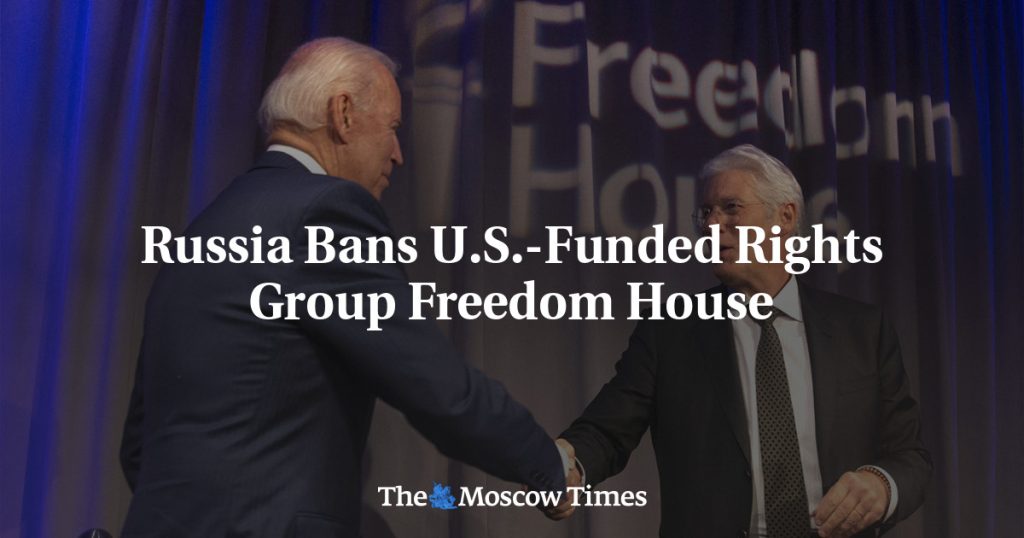The Russian government has recently declared the U.S.-funded rights group Freedom House as an “undesirable organization,” effectively prohibiting anyone from being associated with the group. The decision was made by Russia’s Prosecutor General, who accused Freedom House of supporting Ukraine against Russia and discrediting the Russian army. According to the statement, the organization provides assistance to Russian opposition groups, pro-Western and LGBT activists, as well as individuals convicted of terrorist crimes. Freedom House operates in over 30 countries, supporting local democracy activists and civil liberty groups with funding primarily from the U.S. State Department. It is best known for its “Freedom in the World” index, which assesses countries’ civil liberties.
This move is part of a broader crackdown on organizations in Russia deemed as “undesirable” since 2015. Various media outlets, think tanks, and non-profit organizations have been targeted, including the World Wildlife Fund, Greenpeace, Transparency International, and Radio Free Europe/Radio Liberty. The Russian government’s actions reflect its stance on organizations that receive foreign funding and support, which it perceives as interference in its internal affairs. By labeling such organizations as “undesirable,” Russia aims to curb their influence and activities within the country. This crackdown on civil society groups further limits freedom of expression and restricts opportunities for citizens to engage in civic activism.
Critics argue that Russia’s designation of Freedom House as an “undesirable organization” is a violation of freedom of speech and association. By targeting organizations that support civil liberties and democracy, the Russian government is seen as trying to suppress dissent and independent voices. The decision to ban individuals from working for or having any links with Freedom House is seen as an attempt to silence opposition and stifle activism in the country. It reflects a wider trend of increasing authoritarianism and restriction of political freedoms in Russia.
Freedom House, on the other hand, maintains that its mission is to support democracy activists and civil liberty groups worldwide. The organization’s work is focused on promoting human rights, democratic governance, and freedom of expression. By providing financial, legal, and other support to civil society organizations, Freedom House aims to empower individuals and groups advocating for social and political change. The group’s funding from the U.S. State Department has been a point of contention, as it has been used by the Russian government to accuse Freedom House of acting as a tool of Western interference.
The banning of Freedom House in Russia is likely to have implications for other civil society organizations operating in the country. With the threat of being labeled as “undesirable,” groups that receive foreign funding may face increased scrutiny and restrictions on their activities. The Russian government’s actions could further isolate the country from international cooperation and engagement with human rights and civil liberty groups. The move also raises concerns about the broader implications for freedom of speech and democracy in Russia, as civil society organizations are essential for holding governments accountable and promoting fundamental rights.
In response to being designated as an “undesirable organization,” Freedom House has condemned the Russian government’s decision and vowed to continue its work supporting democracy and human rights. The organization’s commitment to defending civil liberties and promoting democratic values remains unwavering, despite facing challenges and restrictions imposed by the Russian authorities. The ban on Freedom House in Russia serves as a reminder of the global struggle for human rights and democracy, as organizations like Freedom House continue to advocate for fundamental freedoms and social justice in the face of authoritarian crackdowns on civil society.


